She Makes Auto Body Shops Go Viral
Caroline Murray gave me all of her small business social secrets.
A few months ago a video from an auto body shop in Austin, Texas showed up on my FYP. Despite living 1,225 miles away from Austin, the video broke into my algorithm and I watched the entire thing. The post currently has 8.7M views, which is about nine times the entire population of Austin.
It’s been interesting to watch small, local businesses achieve huge success on TikTok. One of the most recognizable likely being Dr. Miami, whose strategy, which was led by Santina Rizzi up until she left recently, has gained him over 3M followers and 261M likes. I also think about the local car dealerships, chiropractor offices, coffee shops, and restaurants that have gained massive popularity on the platform.
TikTok’s discovery-fueled algorithm has allowed local business to have fans around the world.
Today’s interview is with Caroline Murray, a social media strategist at the agency Flash Marketing. She has helped an auto body shop (yep, the same one that showed up on my FYP!) gain 25K YouTube subscribers, a medical office get over 2M TikTok Likes, and an opioid treatment facility unlock new stories.
Because I can see your skepticism from here: yes, big views do lead to big business. As Caroline tells me in the interview, people walk into the auto body shop because of posts they’ve seen and the opioid treatment facility regularly gets inquiries on Facebook Messenger. Awareness leads to action.
Below we talk about why she thinks of posts as conversation starters, how to get employees comfortable in front of the camera, and more.
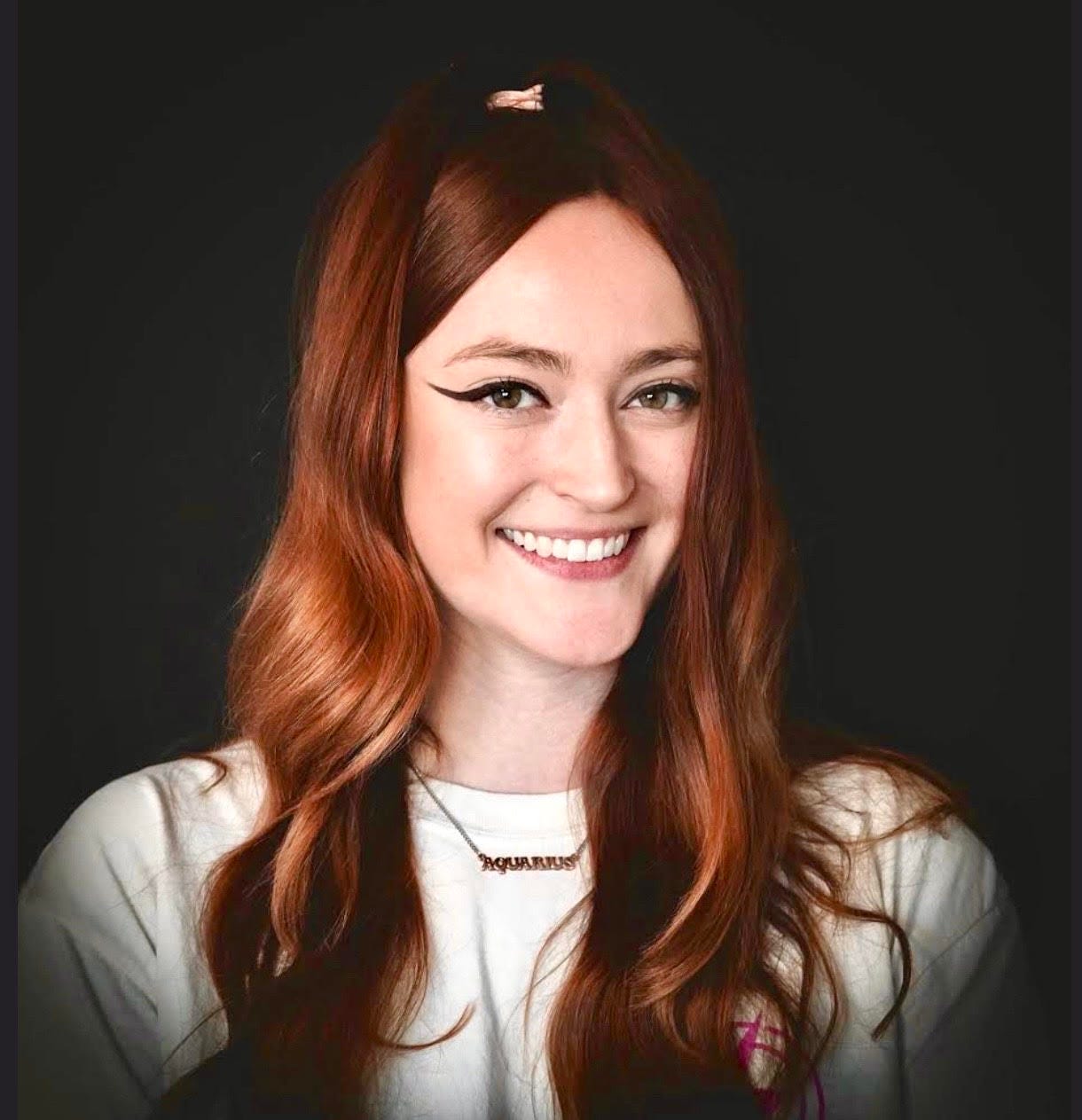
Rachel Karten: First, can you tell me about your current role and any previous social (or not!) roles you've had?
Caroline Murray: I’ve worked in social media for about eight years now. My first internship in college was making content for American Heart Association, and from there I kind of hopped around a few other local gigs where I did both paid and organic—but organic is what I’m really best at and love the most so now it’s my main focus.
I am currently the content manager at the agency Flash Marketing, where we focus on the social media for local businesses.
RK: The growth you've been able to achieve for your clients is so impressive. How would you sum up your philosophy or approach to social media?
CM: My philosophy is that social media is about starting conversations and building a community based on that.
We use the real people at the business for everything and we talk about things that provide value to people—whether it be education, entertainment, or creating a good debate for the comment section.
We work hard in our research phase to make sure we are finding relevant things that people are discussing online so that we can start the right conversations and build those relationships with people.
 Tiktok failed to load.
Tiktok failed to load.Enable 3rd party cookies or use another browser
RK: When these local businesses approach you for social media help, what are some of the first steps you take for developing their strategy? What platforms do you focus on?
CM: We like to take a look at anything they’ve done in the past that has done well or not worked, so we can have some direction of what content pillars to build on and which ones to stay away from.
We also look at all the competitors to see the same thing. We kind of perform our own little SWOT analysis.
That being said, there have been a few accounts that have been started from scratch and we don’t have much to work with. If that’s the case, we will just experiment heavily until we find what works. Facebook, Instagram, TikTok, and YouTube are always the platforms of focus.
RK: I feel like you have a serious talent for coming up with prompts for these interview-style posts. What does that brainstorm process look like?
CM: Our process is rather simple, but I want to note that our agency consists of only three people and we are all involved in every step of the process. Me, our Creative Director Zac Perkins, and our CEO Michael Beltran. The three of us will get together, open a Google Doc, and just start typing.
We get creative with our searches and do HEAVY social listening to see what people are talking about—which is what we rely on the most and what always sparks inspiration. We also have little tricks for re-working things we’ve already done if we are feeling stuck.
RK: It seems pretty vital that the business owners and employees are willing to be on camera. Any tips for getting people comfortable filming content?
CM: Simple things like being nice and giving compliments always helps.
I feel like being relatable too and letting them know you understand that it actually is hard to be on camera. We all mess up and get tongue-tied sometimes, even the professionals!
We usually have a wide range of content ideas too, so if someone is new to being on camera, we try to start them off easy with a really simple video like answering a tiny mic question.
RK: Can you walk me through a little bit of the nitty gritty. How often are you filming with clients? Are you batching content? Do you tell them the prompts beforehand?
CM: We film with clients every four to eight weeks, depending on how much content we get each shoot.
We content batch so whenever we have our shoot list brainstorms we try to come up with at least 20 ideas to film the day of the visit.
We post for every client three times a week, so we’ll try to always do the math and think “how many weeks of posts can this be”.
For the prompts, it always depends on the client. Some people like to know the prompts beforehand and we will send them a week prior, and for some people who are really good on camera, like Genuine Automotive, we prefer to not tell them so we get their authentic response.
RK: Your success with Genuine Automotive is so impressive. I personally love watching all of the videos…and I live in LA. I noticed they are on YouTube! Can you talk about that strategy? Are they monetized?
CM: We actually didn't add YouTube for them until about eight months after making content for them. So when we created their YouTube channel, we went back and uploaded eight months worth of content onto their YouTube page in just a couple of weeks, and that strategy seemed to help explode their channel.
I'm not sure we would have been able to get them monetized had we not had posted so much content in a short amount of time (I believe to apply for monetization it requires something like 10 million views in 90 days or something). So, something to consider for those who want to take advantage of Youtube Shorts—building up a library of content beforehand seems to help!
RK: What are three tips you'd give a small local business on how they should approach social media?
CM:
Don’t be afraid to try new things. Experimenting is a big part of organic social media. Sometimes it can take months to find what works.
Don’t get discouraged if things aren’t performing. Again, it can take MONTHS to finally find success with organic and it’s easy to compare yourself to other big accounts that get more likes. At the end of the day, you’re still building an authentic presence for yourself for customers to see.
Be consistent. If you’re going to start posting, make sure you really have a plan in place that will allow you to consistently deliver content for people.
RK: If you look across all of your accounts and the posts that have overperformed, what would you say are the common themes?
CM: I’d say the most common theme is the topics were conversation starters.
People on social media LOVE to shove their opinions in your face or talk about their own experiences, and we craft our interview-style videos around this. We always try to imagine how people will reply or if they will want to.
For example, on one of our doctor videos asking their GPAs, all of the comments are people sharing their GPAs. Or the most mileage ever seen on a car for Genuine Automotive, all the comments are people sharing what they’ve seen on cars.
The theme is always that we’ve triggered someone to feel compelled to talk about their personal experience as it relates to the prompt.
RK: And have your clients gotten new business from their social posts?
CM: Yes we definitely have! Genuine Automotive has had people come through the door because of their TikToks—and they got some pretty expensive jobs out of it including a $7K transmission job.
MyMAT Clinic, our opioid treatment facility, has a big Facebook following from their Reels and they get lots of inquiries on messenger.
RK: What do you love about working in social media?
CM: I love the sense of community that comes with it. Like watching people come together and react a certain way when we have a compelling piece of content.
Every now and then I will see a stitch or duet of one of our viral videos on my page and the feeling of it never gets old. It’s awesome.
You can support free interviews like this one with a paid Link in Bio subscription! It’s likely an educational expense at your company—here’s a template for you to use when asking your manager. The Discord is worth the subscription alone IMO!
The Link in Bio Job Board is full of new roles at places like Apple, Seed, Figma, Ramp, and more.
Talk again on Tuesday where I’ll be sending from the Jersey Shore!!!!!!



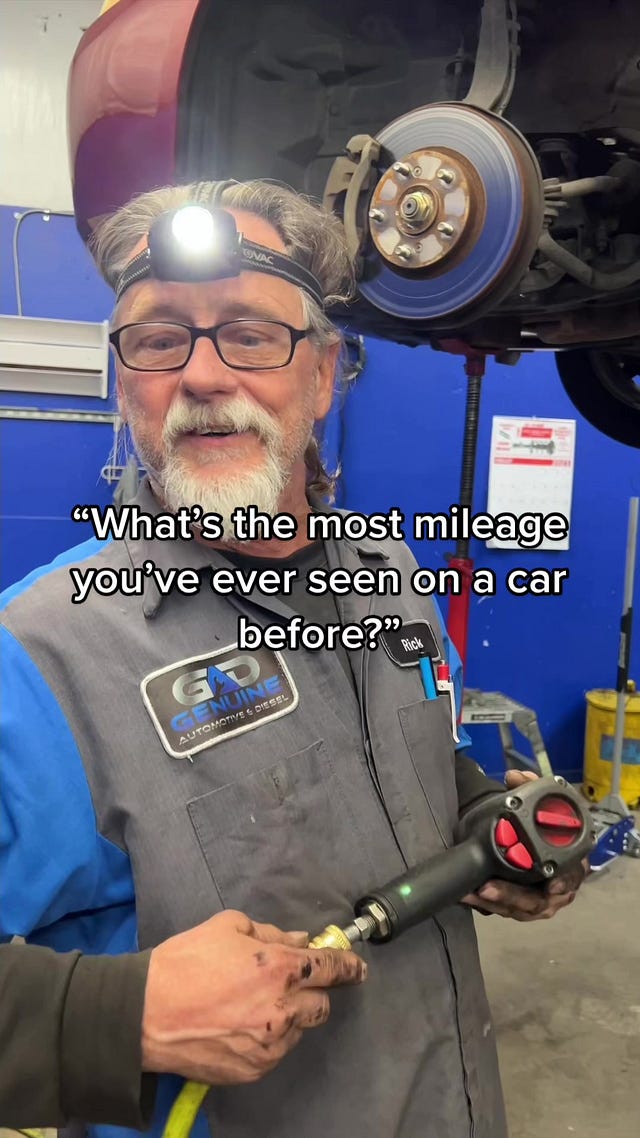

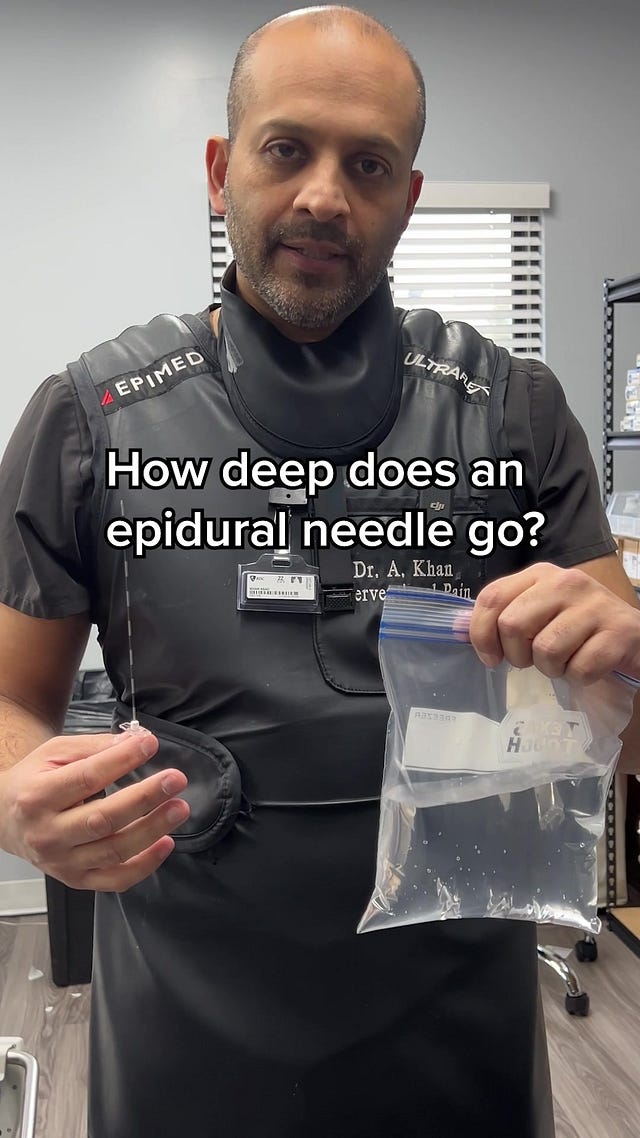
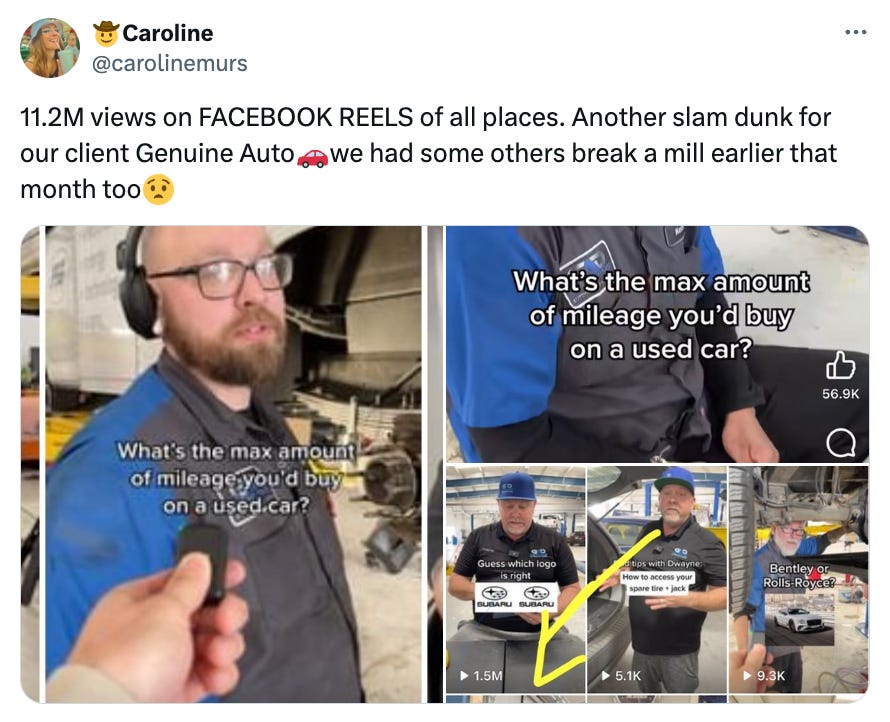
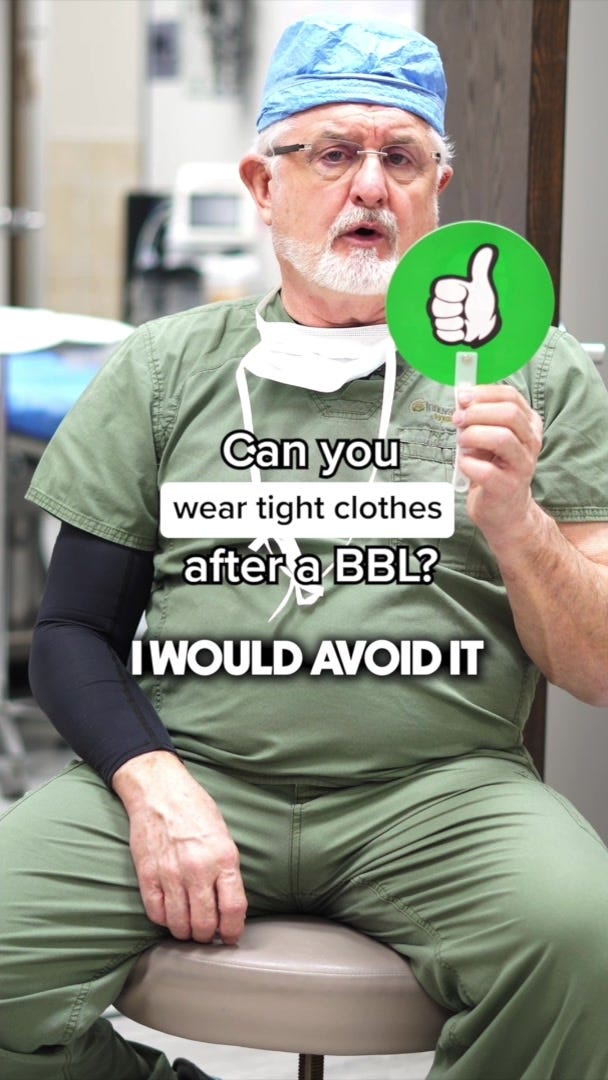

"Because I can see your skepticism from here: yes, big views do lead to big business."
lol was about to race down to the comments to ask this.
This is exciting, I wish you asked her about what she thinks about the Tik Tok Ban since a lot of businesses actually built their clientele through posting on Tik Tok, Tik Tok is a location based platform where a video that went viral in your area can be shown to you because you live in that area. Instagram and other apps fail to remodel this (as far as I know at the moment), but yeah I wonder how she would navigate that.